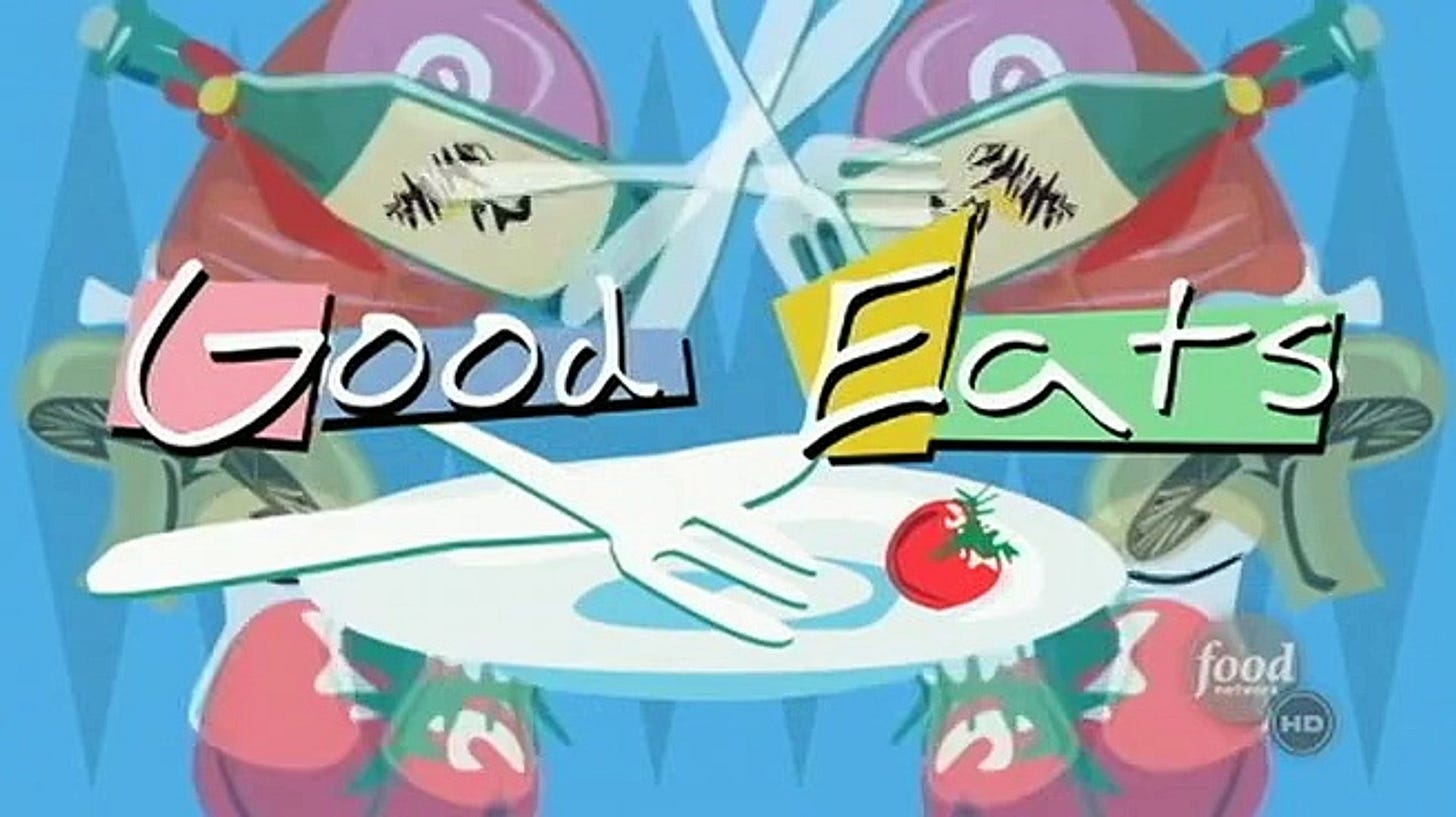
At the end of summer 1987, REM dropped a new song. “The One I Love” was moody, dismissive and (as Michael Stipe put it) almost too brutal to release. But the band had been performing for seven years. It was time to take a little risk.
As soon as the “The One I Love” came out, a young videographer put a plan in motion. He’d noticed that, sure as clockwork, REM returned to the same Athens-based studio whenever it was time to produce a new music video. So he got a job as a steady cam operator. And waited.
It took a few months, but he was right. That music video was the first step in Alton Brown’s long career in television.
Brown is on my mind because last week, after stumbling across his Reddit AMA, I learned that Good Eats – the strange home cooking show that originally made Brown famous – is being rebooted, seven years after its last episode aired. Half the AMA participants thanked Brown for inspiring them to attend culinary school or otherwise work in food.
Before any of this happened, Brown grew up mostly in Georgia. He lost his father at a young age, went to University of Georgia, studied film. By the time he was in college, he’d already spent endless hours in the kitchen with his mother and grandmother, learning how to cook.
During downtime on set, Brown quietly watched cooking shows, studying the way they were filmed and presented, feeling frustrated when the shows made choices he disagreed with. At some point, he realized he was on the wrong side of the screen. So he went to culinary school, where everyone scoffed at his determination to cook on TV.
The naysayers can probably be forgiven, because Brown eventually created a show unlike anything that preceded it. When the first episode aired in 1999, Brown’s vision became clear. His storytelling flows seamlessly, despite being packed with an average of 600 pages of research per episode. He condensed decades of history into momentary explanations, then pivoted to gruff, opinionated cooking demos, often within a single take.
Then things get even weirder. In addition to injecting science and history into what is essentially a home cooking show, Good Eats was knitted together with bizarre, surreal skits. I used to watch Good Eats when I was in elementary school, and I remember giant puppets and dark stages lit by fog machines, all in the name of dramatizing the incredible things that happen when you sear, grill, pickle or ferment ingredients.
The original concept paid off: Good Eats nabbed a Peabody Award in 2007 and a James Beard Award in 2011.

To achieve these effects, Brown approached the show as a filmmaker, rather than a chef. He invested in miles and miles of speed rail for smooth, continuous shots. His staff built sets that could fly apart and be reassembled during shoots.
At times, Brown pushed people so hard, on such specific details, that they called his wife, DeAnna Collins, (who was also his business partner) to reel him back in. “I was trying to make Fabergé eggs instead of deviled eggs,” Brown admitted on a recent Slate podcast, where, revealingly, he also mused about whether his demanding personality was the reason for his two divorces. (It’s worth listening to the whole episode, which is packed with interesting details.)
When the new season’s trailer dropped in August, it was clear not much would change from the show’s original run. The same organ theme zipped over the same retro, kaleidoscopic title sequence. New York Magazine’s Grub Street calls the new season “a mindful panacea in times of chaos and unrest,” praising the show’s ability to pack deep dives into kitchen tools and history into mere 22 minute episodes. (Though the same review also criticizes Brown’s “dad jokes.”)
Still, Brown doesn’t seem to have any illusions about his role in the Food Network universe. He recently told Fast Company:
“I’m such a tiny player in this. Even in the Food Network galaxy, if Guy Fieri is the sun, then I’m Jupiter’s moon Io. I’m a spinning, strange little rock. I’m Tom Waits and he’s Britney Spears. I don’t mean that as an insult to him. I mean in terms of popularity I’ve always operated on the fringe and that’s allowed me a lot of movement and a lot of freedom.”
But there are plenty of people out there on the fringe with Brown – people who want to learn how to grill fish, or purchase the right canned tomatoes, or make a classic dish perfectly, and who don’t mind a skit or two along the way.

Something else
Are you all reading Trick Mirror? I finished it over the weekend and immediately wanted to start over from the beginning.
I graduated from University of Virginia a few years after Jia, so I was particularly struck by the chapter about my alma mater. I vividly remember sitting in Alderman and ignoring my homework while devouring her meticulously reported Jezebel story after the Rolling Stone debacle, so I was surprised to learn that it was actually her first reported piece.
Each essay is filled with details like that – small twists and turns that complicate well-worn debates, current events and feminist concepts. I’m dying to hear others’ reactions, so feel free to drop me a line any time!
One more thing
We hit our Kickstarter goal last week! Thank you to everyone who pledged to bring Summerhouse to life. I’ll let you know when our first issue drops.


